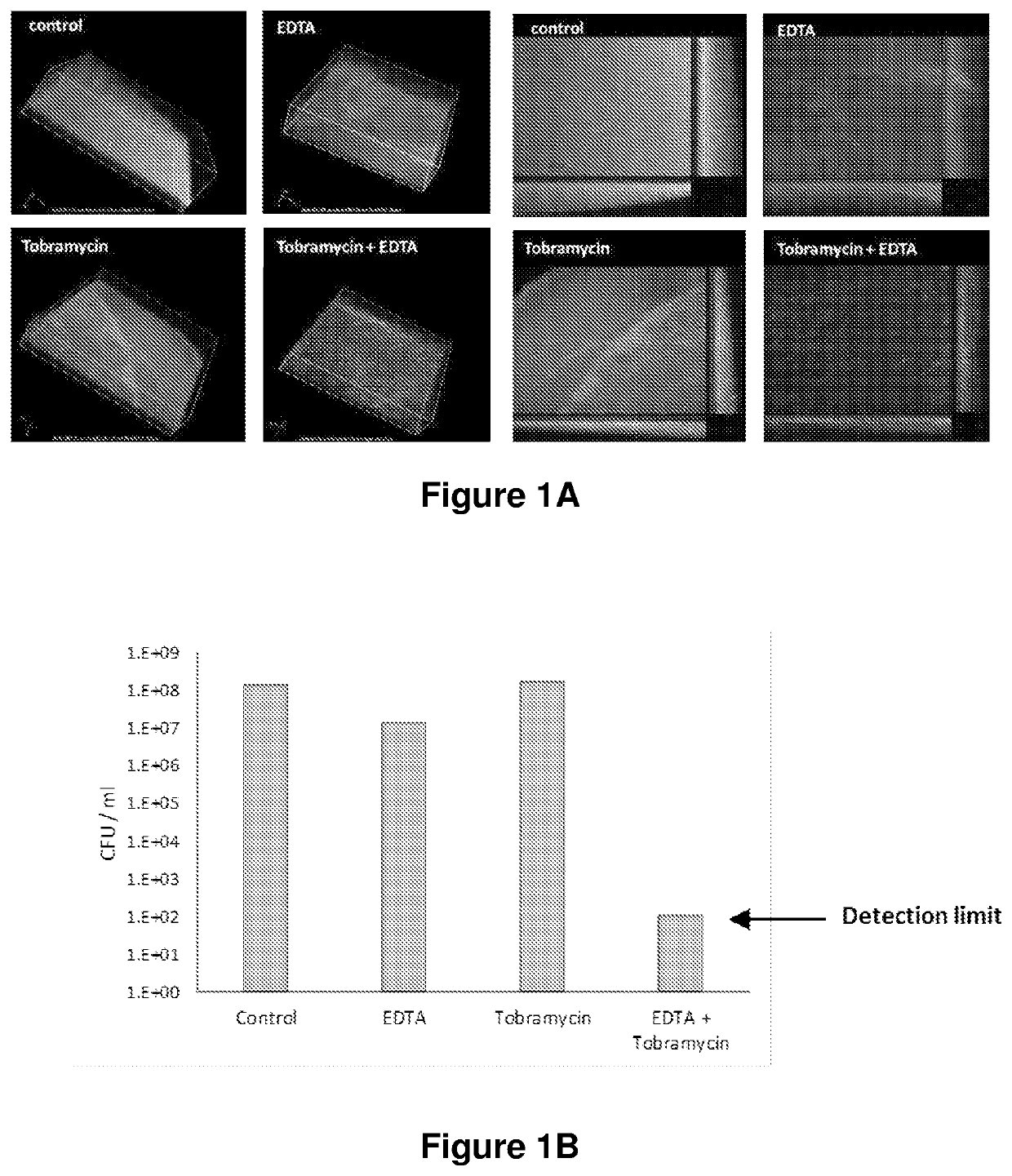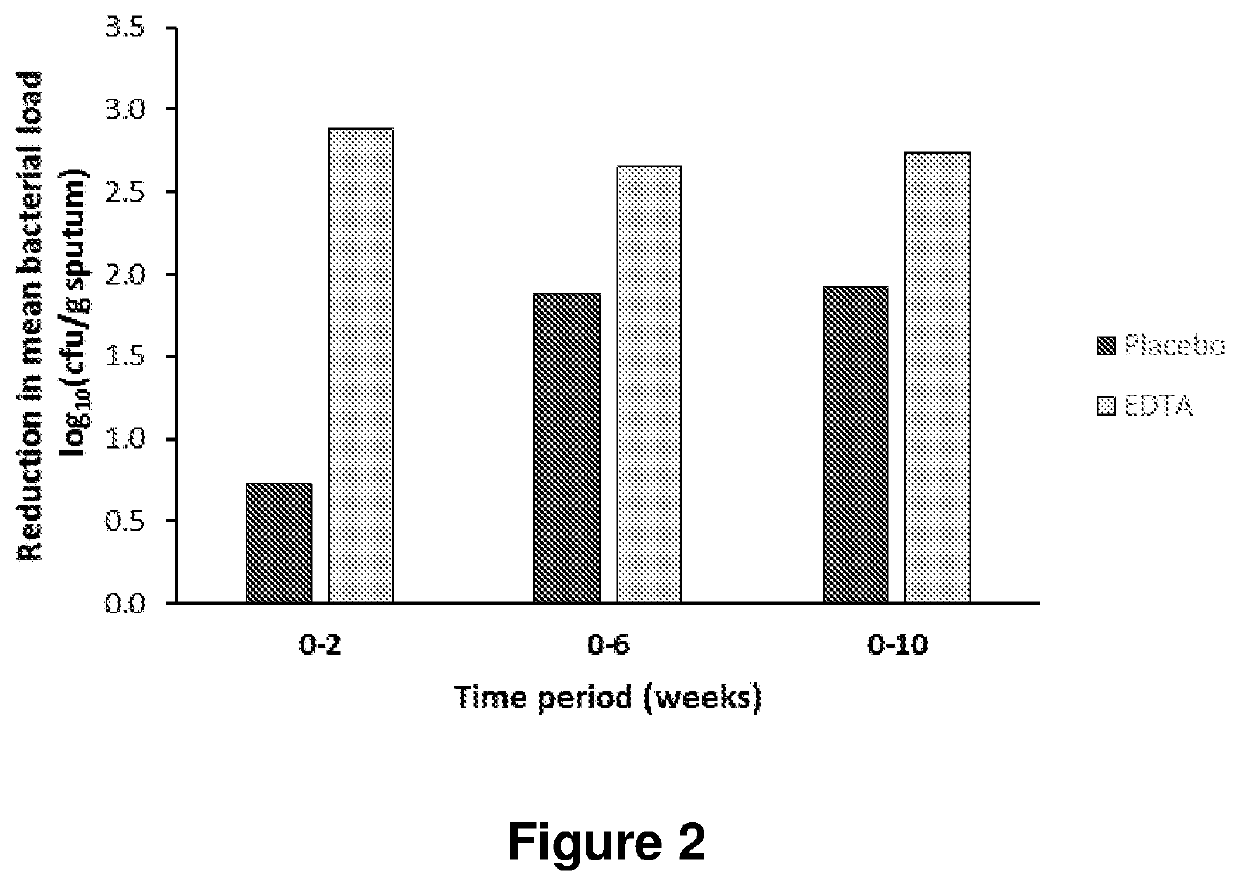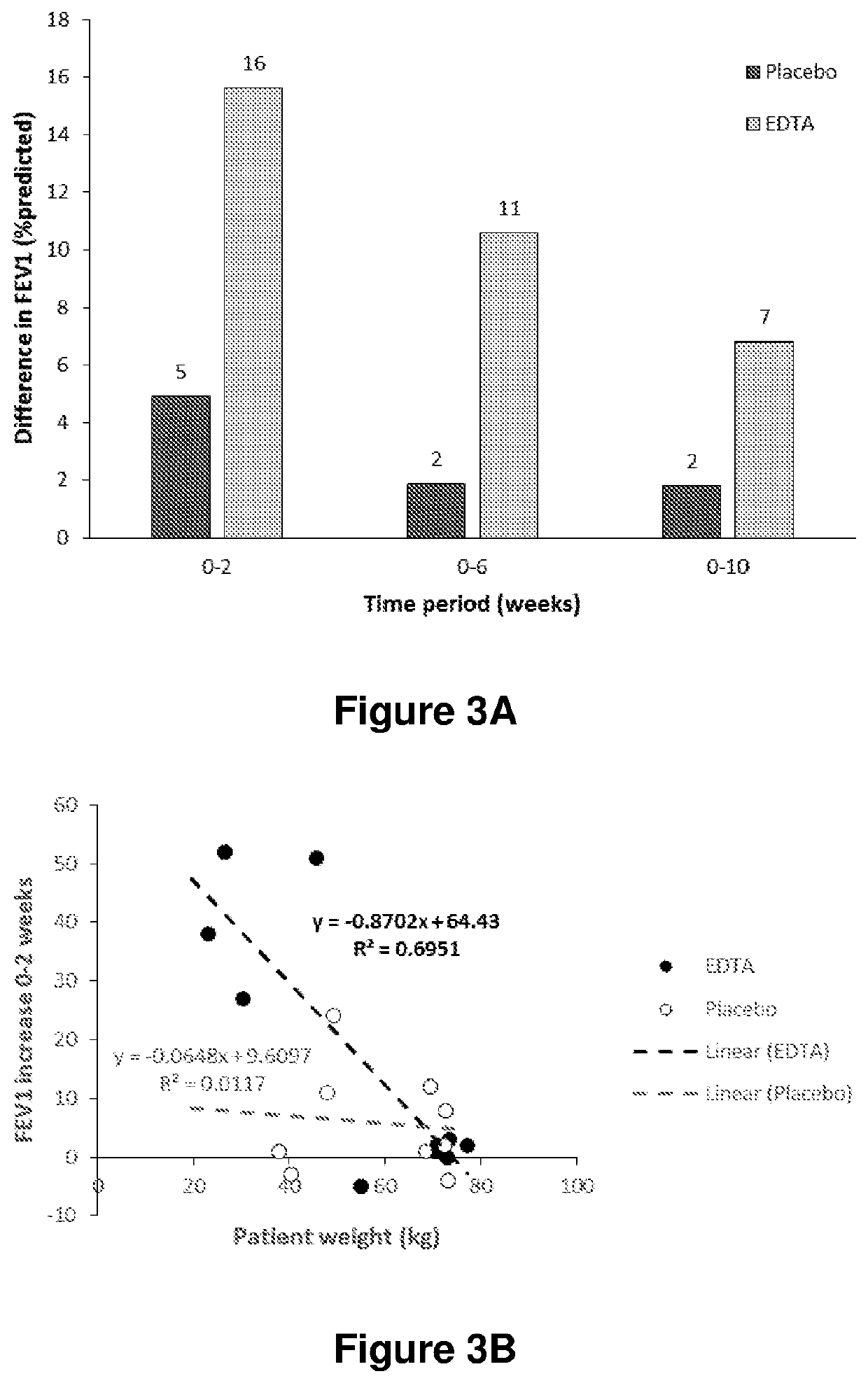Method for reducing lung inflammation
a lung inflammation and lung disease technology, applied in the direction of dispersed delivery, respiratory disorders, drug compositions, etc., can solve the problems of increased contribute to inflammation and lung damage, and excessive inflammation can be life-threatening, so as to reduce inflammation, reduce this effect, and increase weight
- Summary
- Abstract
- Description
- Claims
- Application Information
AI Technical Summary
Benefits of technology
Problems solved by technology
Method used
Image
Examples
example 1
Treating or Preventing Infection in the Lung by Administering a High Concentration of an Inhaled Chelating Agent
[0151]Biofilms were grown in a realistic in vitro model using suspended drops of cystic fibrosis mucus harvested from epithelial cell lines (Haley et al. BMC Microbiol 2012 12:181). Cultures of a Pseudomonas aeruginosa clinical strain (MIC tobramycin >256 μg / ml) were grown into late stationary phase in M63 with no carbon source to mimic nutrient limitation.
[0152]Drops of mucus (5 μl) were suspended from an inverted IBIDI cover slip and inoculated with 103 colony forming units (CFU), then incubated in a humidified environment at 35° C. for 72 hours to allow biofilm development. Drops were then treated for 5 min with either nebulised tobramycin (20 mg / ml), aerosolised CaEDTA particles (10 mg / ml), or both. Controls were treated with a 50 / 50 solution of nebulised 0.9% saline / water. Following treatment, the drops were incubated for 16 hours, then stained with BacLight LIVE / DEAD...
example 2
of Pulmonary Inflammation Results in a Dose-Dependent Increase in FEV1
[0162]Subjects with CF ≥6 aged years admitted to hospital with an exacerbation were randomised to receive EDTA or saline (placebo) in addition to their usual treatment of intravenous antibiotics and nebulised tobramycin. EDTA was administered together with tobramycin as a nebulised solution of 4 ml 50 mM CaEDTA, 111 mM Tris in 0.9% saline, pH 7.1. Following randomisation, subjects were treated in hospital for two weeks during which they received the treatment four times a day (300 mg EDTA / day). Following discharge, treatment was continued twice a day for four weeks. Subjects were monitored for a further four weeks, bringing the total study time to 10 weeks.
[0163]At each study visit, lung function was measured by spirometry. Data was recorded as the best of three attempts, and results were expressed as % predicted.
[0164]FIG. 3A shows the mean change in FEV1 for both groups at 2, 6 and 10 weeks after the start of th...
example 3
Smoke-Induced Pulmonary Inflammation can be Treated by Administering a High Dose of Chelator to the Lungs
[0166]The effect of a chelator on lung inflammation was tested in a mouse model of chronic obstructive pulmonary disease (COPD). Cigarette smoke (CS) is known to induce pulmonary inflammation, which can be measured by increased leukocyte counts and increased lung weight.
[0167]Male BALB / c mice (8 in each group) were exposed to a measured dose of cigarette smoke over a period of two weeks (3 cigarettes, 3 times per day Monday-Friday) or filtered room air. Mice were treated intranasally with the iron chelator deferoxamine (DFO, 3.8 mg in 50 μl) or vehicle three times a day, 30-60 minutes prior to each cigarette smoke exposure for the duration of the experiment. Mice were then terminated, and airways and lungs were assessed for effects on cigarette smoke-induced inflammation and element concentrations.
[0168]Bronchoalveolar lavage fluid (BALF) was collected (approximately 1 ml / mouse),...
PUM
| Property | Measurement | Unit |
|---|---|---|
| concentration | aaaaa | aaaaa |
| weight | aaaaa | aaaaa |
| weight | aaaaa | aaaaa |
Abstract
Description
Claims
Application Information
 Login to View More
Login to View More - R&D
- Intellectual Property
- Life Sciences
- Materials
- Tech Scout
- Unparalleled Data Quality
- Higher Quality Content
- 60% Fewer Hallucinations
Browse by: Latest US Patents, China's latest patents, Technical Efficacy Thesaurus, Application Domain, Technology Topic, Popular Technical Reports.
© 2025 PatSnap. All rights reserved.Legal|Privacy policy|Modern Slavery Act Transparency Statement|Sitemap|About US| Contact US: help@patsnap.com



